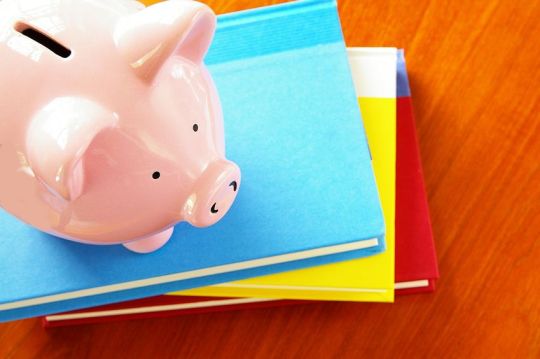

What Happens If I Can’t Pay My Student Loans?

These days, it’s not uncommon for people to be worried about what you can do if you don’t pay your student loans. But if you’re in a position where you might not be able to make your student loan payments, your first step should be to get informed about your rights and learn what actions can help you navigate through this challenging situation.
It’s always important to call your lender and attempt to work out an agreement with them, rather than simply ignore the problem or hope it will go away.
Below, we’ll explain each step of the process to prepare for what happens if you don’t pay your student loans. When you think you are going to have problems making the monthly payments, you need to take action immediately and use these answers to determine your best course of action:
Should I use deferment if I can’t pay my student loans?
You should definitely consider it. But first, let’s make sure we understand what it means. Deferment on student loans means that you are not required to make your usual monthly payments (and if the loans are subsidized, then they won’t accrue interest either). To qualify for deferment on federal loans, the Department of Education states that one of these conditions must be true:
You are enrolled in school or a graduate fellowship
You are participating in a disability rehabilitation program
You are unemployed or facing economic hardship
You are on active duty in the U.S. military
What about deferment for private student loans? In many cases, private lenders have similar rules regarding deferment eligibility. If you are afraid of missing payments on a private loan, your first step should be to inquire about deferment. However, if you don’t qualify, this next question is one you should ask…
Should I use forbearance if I can’t pay my student loans?
Forbearance can be a great option for people who can’t pay their loans and are not eligible for deferment. You might wonder, “how is forbearance different from deferment?”
The answer is that while deferment allows you to postpone payments and avoid accruing interest, forbearance means a temporary renegotiation of your repayment plan with your lender. You may be able to reduce the amount of your monthly payments, spread your payments over more years, or even refrain from paying for a period of time. But meanwhile interest charges will continue and will be added to your principal balance.
However, despite the fact that forbearance will not save you from continued interest charges, it can still be a lifesaver if you can’t meet your minimum payments.
What programs are available to help lower my student loan payments?
There are some great programs for people who cannot afford their monthly payments. Most important is the Income-Based Repayment program, which limits your monthly payment to 15% of your disposable income and extends your repayment term to 25 years. While this can cost you more interest charges in the long run, it can be very helpful for people whose monthly payments under the standard repayment plan are simply too high.
Other programs to be aware of are the Public Service Loan Forgiveness Program and the Direct Consolidation Loan Program.
What if I miss a student loan payment?
Sometimes you simply can’t pay and have not been granted a period of deferment or forbearance. When you miss a payment on your student loan, it’s similar to what happens when you can’t pay your credit card, but it depends on exactly how late your payment is.
If you are less than 30 days late on your payment, there might not be any immediate consequence. You may be contacted by your lender or servicer, but they will not usually report you to one of the 3 major credit bureaus at that point, so your credit report and credit score will still be safe.
If you become more than 60 days late on your payment, the lender will probably be contacting you to find out why you haven’t paid and they will try to convince you to pay at least part of the amount you owe. At this point, your tardiness may be reported to the credit bureaus, in which case your credit score would suffer.
How much will my late student loan payment hurt my credit score?
If you become more than 90 days late, you will usually be considered delinquent on your student loan payment, and at that point you will almost certainly be reported to the credit bureaus. This can have a very negative impact on your credit score, especially if your score was relatively high to begin with. For example, if your score is currently above 750, it may drop by as much as 100 points as a result of a being delinquent on your student loan.




Criminal, criminal, criminal, criminal…… Fuck government, corporations, greed, debt…..I am sick of this shit. It needs to stop today! We are awake, we are change. Love wins, illuminati loses and will pay for their corruption and lies